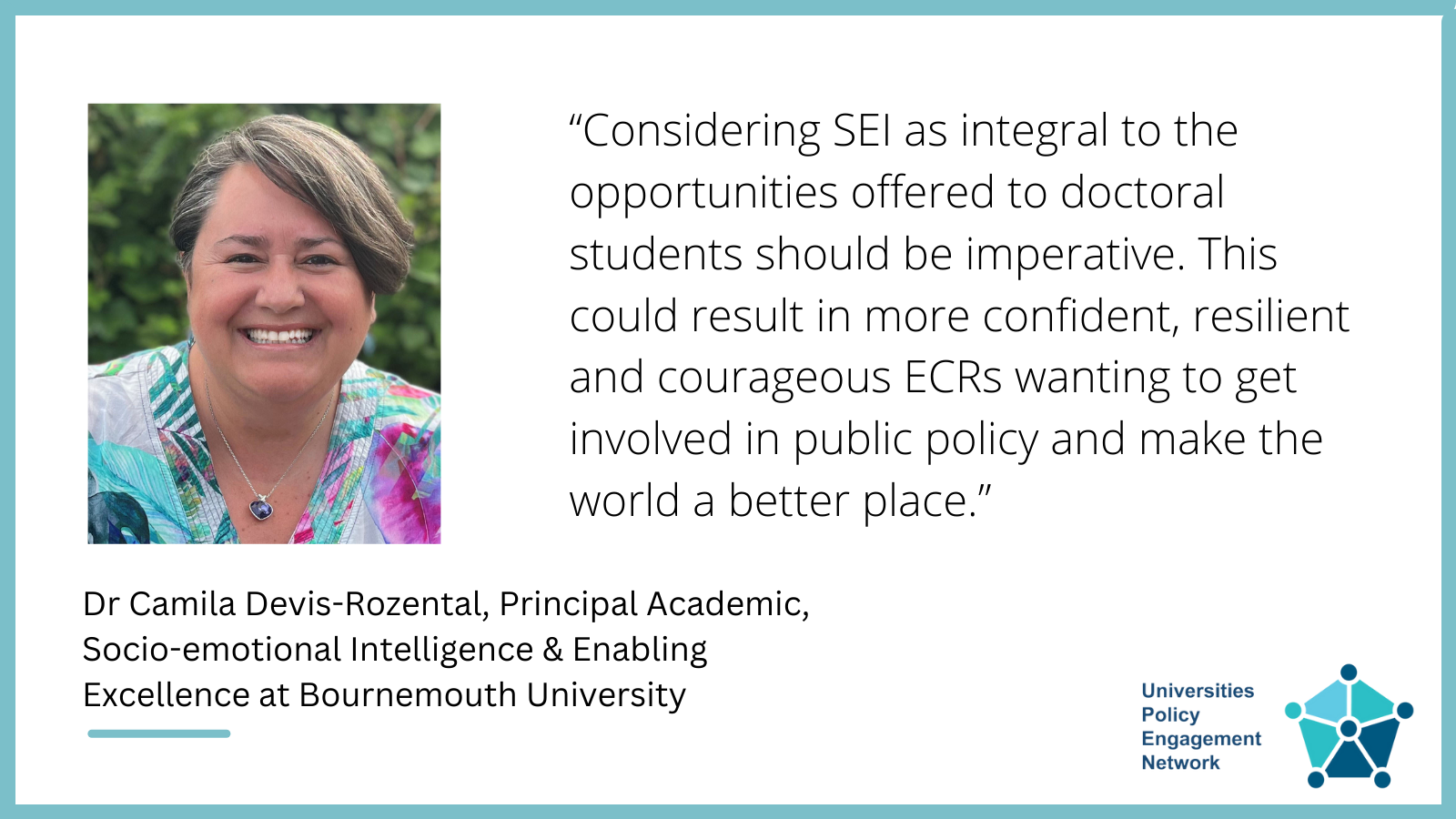Supporting doctoral students and early career researchers to develop their socio-emotional intelligence could increase their engagement with policy.

As academics we are increasingly expected to demonstrate an impact from our research to solve world challenges and inform practice. This may mean engaging in public policy. Now, this is not something that just happens; it needs to be carefully considered and requires an understanding of how to translate research into policy, how to communicate well, and how to effectively manage the barriers that they may face along the way.
To support doctoral students in getting ready to share their work meaningfully, there should be opportunities for them to develop their socio-emotional intelligence (SEI) whilst completing their doctoral studies and early in their career. As ECRs grow in confidence, self-esteem, social awareness and resilience, for example, they may feel more confident and willing to engage with public policy. Furthermore, developing self-awareness and academic identity will help them to assert how their research can indeed make an impact on public policy.
Of course, doctoral students and ECRs will already have aspects of SEI – we all do. But developing them further can only be positive and enrich our experiences. It can also enhance the doctoral students’ motivation to actively contribute to policy discussions, to build effective networks as they develop their social awareness, and to assert their academic identity, as they know better themselves, whilst making a positive impact in the world.
In my latest paper (Devis-Rozental 2023), I discuss four main interventions that can have a positive impact on the doctoral students’ development of SEI:
1-Providing a positive welcome and early interventions. This means making sure that everything is ready for their arrival, and there is a programme of support for their academic and personal skills so they develop a sense of belonging early on, and they feel secure and confident as they begin this learning journey.
2-Offering opportunities to learn with other doctoral students so they can learn from each other and also develop their empathy, social engagement and confidence. This will also prevent isolation, which is often reported by doctoral students.
3-Developing effective relationships with the supervisors. This is important because it will be a long journey and having a positive experience and the right support will make it easier to manage. But also because we are social beings wired to connect, and we learn and develop our own SEI from others. Consequently, supervisors should role-model the attitudes and behaviours that they expect from their students. I believe that supervisors are much more than a font of knowledge, and as the relationship between doctoral students and supervisors is shifting to a more informal peer learning experience, it isn’t necessary to be scary, unapproachable or unkind, as some supervisors may still feel they have to be, to command authority. We should be the type of supervisor we had (I was lucky; mine were amazing), or we wish we had.
4-Enabling psychological safety in the spaces where doctoral students and ECRs exist. This is key to enabling them to learn and thrive, to make mistakes and learn from them, and to reflect on their own academic identity. Ensuring this will have a positive impact on their experience and support them in becoming confident academics who don’t have to sacrifice their wellbeing to be able to achieve.
Considering SEI as integral to the doctoral development opportunities offered to doctoral students should be imperative. This could result in more confident, resilient and courageous ECRs wanting to get involved in public policy and make the world a better place.
References:










































































































